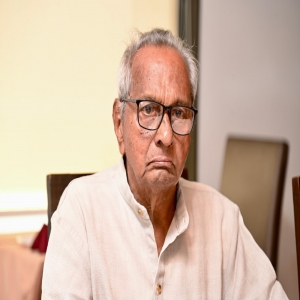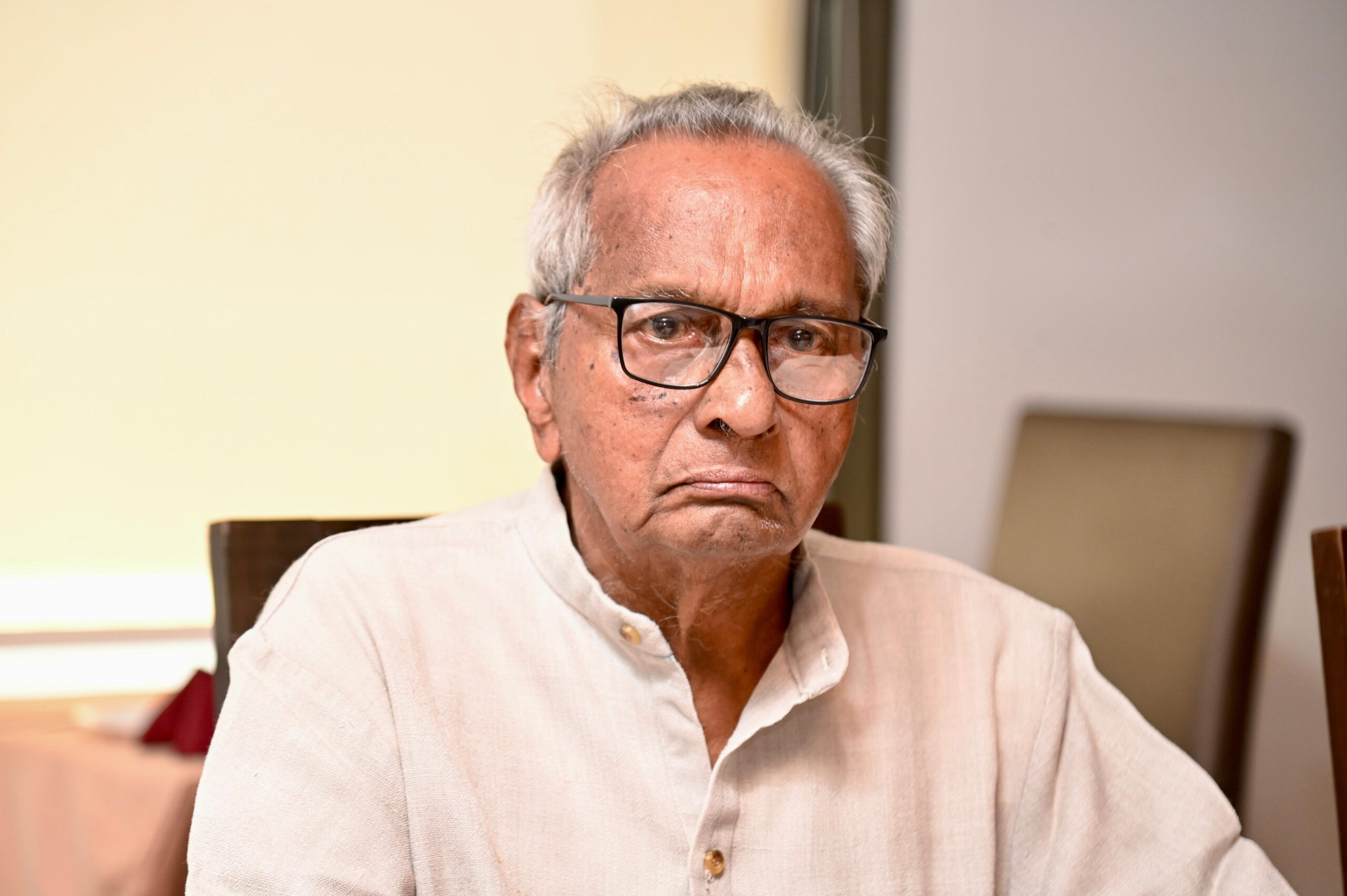
.png) Joseph Maliakan
Joseph Maliakan

With the demise on November 20, 2024, of VT Rajshekar, founder-editor of Dalit Voice, the world has lost a fierce critique of Brahmanism in India and Zionism in the West. Born a Kannada Shudra Shetty, also known as Bunty, on July 17, 1932, Rajshekhar remained an unrelenting campaigner for the liberation of the Dalits, Adivasis, and marginalised communities in India throughout his working life.
Rajshekhar began his journalism with the Deccan Herald, Banglore, and later shifted to the Indian Express, Banglore, for which he reported both from Banglore and Bombay. His fight for the marginalised and workers led to the Indian Express even terminating his services. He was probably the only journalist working in the mainstream media who converted to 'Dalitism,' at that time, leading to a legal battle he won. Soon after he won the battle, he quit his job and launched the Dalit Voice in 1981, a magazine exclusively devoted to highlighting the discrimination faced by the untouchables and also documenting their struggles and aspirations.
Very soon, Dalit Voice became the most widely circulated Dalit journal in India. The success of the Dalit Voice did not sit well with the highly Brahmanical Indian society, and he lost all his middle-class and upper-caste friends. However, this did not deter him from writing, editing, printing, and distributing Dalit Voice single-handedly from his Banglore home.
Right from its beginning, Dalit Voice promoted anti-untouchability and radical anti-Semitism and was linked to Afrocentric ideologies. Rajshekar believed more in Dalit-Muslim unity rather than Dalit-OBC unity because he believed that the OBCs, as has been proved in the 2014 and 2019 parliament elections, would align with the Sangh Parivar promoting a caste-ridden society exploiting and discriminating against the lower castes based on Manusmriti.
He was a staunch anti-Zionist and wrote several articles condemning Zionism. Dalit Voice continuously criticised Israel and Zionism. He did not convert to Islam but was an ardent supporter of Islam. For more than five decades, he relentlessly fought for the liberation of Dalits through articles, books, and various pamphlets on burning political, social, and caste issues.
Interestingly, Dalit Voice was better known in Africa and many Muslim countries than in India. In 1986, Rajshekar's passport was impounded because of "anti-Hinduism writings outside of India." The same year, he was arrested in Bangalore under the draconian Terrorist and Disruptive Activities (Prevention) Act (TADA), 1985. The Act was allowed to lapse in 1995 due to increasing unpopularity after widespread allegations of misuse.
TADA could be compared to the currently misused draconian law, Unlawful Activities (Prevention) Act (UAPA) 1987, under which civil rights activists are being held in prisons without trial for years. Rajshekar was also arrested under the section dealing with sedition under the Indian Penal Code "for causing disaffection between communities."
His commitment to the Dalit cause was so ardent that in 2016, at the age of 84, he went to Hyderabad to take part in the protest meeting against the institutional murder of Rohit Vimula in Hyderabad Central Univerity. Even though the police did not allow him to enter the Hyderabad Central University campus, he stood in protest at the university gate for quite some time.
A prolific writer, Rajshekhar published some 30 books, several pamphlets and hundreds of articles. One of his well-known books is The Black Untouchables of India. Among his other books are How Marx Died in Hindu India; Why Godse Killed Gandhi, Hindu Serpent and Muslim Mongoose, Mahatma Gandhi and Babasaheb Ambedkar: Clash of Two Values, Apartheid in India: An International Problem, Ambedkar and His Conversion: A Critique, Judicial Terrorism, India as a Failed State, Caste: A Nation Within A Nation, The Zionist Arthasastra, Brahminism in India and Zionism in the West and India's Muslim Problem.
Rajshekar received the London Institute of South Asia (LISA) Book Award in 2005 and the Mukundan C. Menon Award instituted by the National Confederation of Human Rights Organisations (NCHRO) in 2018.
Inspired by Rajshekhar, this reporter wrote several reports on the discrimination faced by scheduled caste and scheduled tribe students in educational institutions in the country. Despite the constitutional provision for 14 per cent and 7.5 per cent reservation for SCs and STs, respectively, the annual intake of both groups together in higher education institutions is below 10 per cent. Further, the high dropout rate for the SCs and the STs is a mockery of the reservation provisions. The SCs and STs are invariably discriminated against in recruitment. Calculating by the rate at which India is moving in terms of equality of opportunities, it will take the services of scores of Rajshekars to establish even a semblance of parity.
In the near absence of Dalit journalists in the Indian Media, the fundamental issues that affect Dalits hardly get any attention. Rajshekar's Dalit Voice ceased publication in 2011. Now the question remains: who will continue to campaign for the Dalits, Adivasis and the marginalised, definitely not the media dominated by the upper castes?